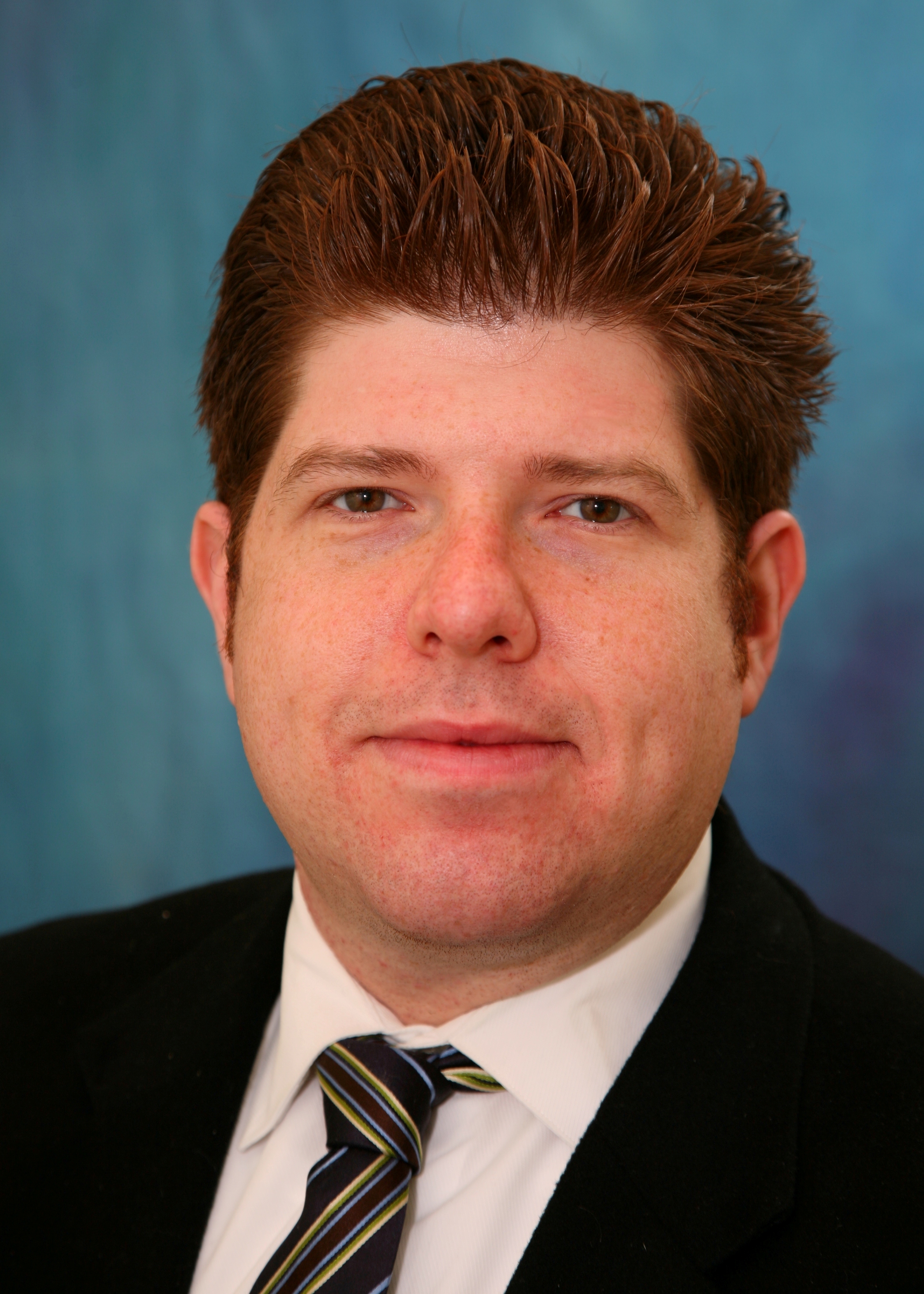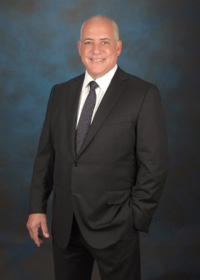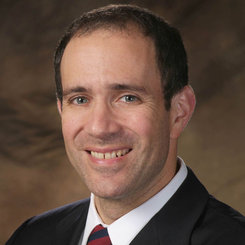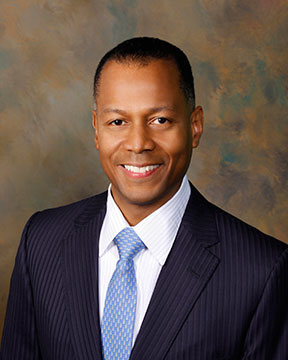Navigating through an ever-changing healthcare landscape and forging the path to success as a spine surgeon makes for a challenging but rewarding journey. Here, 13 spine surgeons give advice to young surgeons who are just starting out.
Ask Spine Surgeons is a weekly series of questions posed to spine surgeons around the country about clinical, business and policy issues affecting spine care. We invite all spine surgeon and specialist responses. Next week's question: Are electronic medical records a boon or a bane for your spine practice? In what ways?
Please send responses to Anuja Vaidya at avaidya@beckershealthcare.com by Wednesday, March 4, at 5 p.m. CST.
Question: If you could give one piece of advice to young spine surgeons, what would it be?
Sanjay K. Khurana, MD, Orthopedic Spine Surgeon, DISC Sports & Spine Center, Marina del Rey, Calif.: The best advice I could give to a young spine surgeon is simple: Patience. Successful practices are not developed overnight. Focus on providing quality care for each and every patient, surgical and non-surgical.
For the surgical patients, ensure that you are not pressing the indications or tackling cases that are too far outside your technical comfort zone. Aim for cases that will result in excellent outcomes with the lowest likelihood of complications. Don't be shy to refer out a patient with a complex problem or involve the help of a more experienced community surgeon. Over time, you will become more comfortable with increasingly complex cases, and the growth of your practice will be built upon a foundation of excellent outcomes and judgment.
 William Taylor, Director, Spine Surgery, Vice Chairman, Division of Neurological Surgery, University of California, San Diego: Provide more than excellent service and outcomes for your patients. A career should include volunteer work, research, new technologies and consulting, and this will lead to increased satisfaction.
William Taylor, Director, Spine Surgery, Vice Chairman, Division of Neurological Surgery, University of California, San Diego: Provide more than excellent service and outcomes for your patients. A career should include volunteer work, research, new technologies and consulting, and this will lead to increased satisfaction.
Expand your practice to be multi-dimensional. Solely concentrating on doing more cases will not help you grow as a surgeon as much as anticipated. The ability of any spine care professional to engage in consulting, clinical trails, abstracts, presentations, data collection and technology development is unmatched in any other specialty. A vibrant growing practice career can encompass any or all of these facets.

Brian R. Gantwerker, MD, The Craniospinal Center of Los Angeles: I would say to stick to your principles. Keep reading industry emails and stay abreast of technology. Do not forget the basics of patient care and never compromise on quality.
 Richard A. Kube II, MD, CEO, Founder, Prairie Spine & Pain Institute, Peoria, Ill.: Do not allow fear to guide your decision while selecting a job post-training. Right now the majority of new grads are seeking hospital employment versus private practice. This is in stark contrast to what was being seen five or 10 years ago.
Richard A. Kube II, MD, CEO, Founder, Prairie Spine & Pain Institute, Peoria, Ill.: Do not allow fear to guide your decision while selecting a job post-training. Right now the majority of new grads are seeking hospital employment versus private practice. This is in stark contrast to what was being seen five or 10 years ago.
Certainly, there are merits in seeking an employed position, and taking such a position should be based upon those aspects. Many are afraid of what the future may hold and are making decisions solely based upon security. History will show that there are always issues every several years that are believed to change or end medicine as we know it.
There will always be advantages and disadvantages to each of these opportunities. What is important to remember is that you are choosing a career, which will likely span decades. You will also be putting in long hours dedicated to patient care. It is important to weigh all aspects and choose based upon your passions. A career is a marathon, not a sprint, so you will need that passion to get you through the tough times and allow you to not only persevere but also enjoy your professional life.
Lloyd Zucker, MD, Chief, Neurosurgery, Delray Medical Center, Delray Beach, Fla.: The era of anecdotal medicine, if not gone is  certainly disappearing. There are many guidelines that are being put into place that appear to control our ability to practice. However, I think this is only true when taken at face value. Most of the measures place demands on the path to surgery, requiring certain levels of conservative therapy. I would encourage the young surgeon to embrace rather than fight this trend. Patients will rarely if ever reject a surgeon who practices conservatism at first. While the trend toward new developments appears to have slowed, those that survive the test of evidentiary medicine have and will continue to be adopted.
certainly disappearing. There are many guidelines that are being put into place that appear to control our ability to practice. However, I think this is only true when taken at face value. Most of the measures place demands on the path to surgery, requiring certain levels of conservative therapy. I would encourage the young surgeon to embrace rather than fight this trend. Patients will rarely if ever reject a surgeon who practices conservatism at first. While the trend toward new developments appears to have slowed, those that survive the test of evidentiary medicine have and will continue to be adopted.
 Gowriharan "Ty" Thaiyananthan, founder of BASIC, Newport Beach, Calif.: One piece of advice that I would give new spine surgeons is to keep an open mind and understand that you and your practice will change and evolve. Even after a long and extensive residency and fellowship training, the way that you will approach medicine and the techniques that you will ultimately employ will evolve over the years.
Gowriharan "Ty" Thaiyananthan, founder of BASIC, Newport Beach, Calif.: One piece of advice that I would give new spine surgeons is to keep an open mind and understand that you and your practice will change and evolve. Even after a long and extensive residency and fellowship training, the way that you will approach medicine and the techniques that you will ultimately employ will evolve over the years.
There will be new surgical techniques and technologies that you may never have been exposed to in training that your patients will expect you to be proficient at and knowledgeable about. Also, the fundamentals of running a practice be it employed, academic or private will 100 percent be on-the-job training — none of us are taught that during residency and fellowship. Expect to make mistakes, expect to have challenges and expect to learn and improve from them.
Lastly, stop frequently to remind yourself why you went into medicine in the first place. Maybe consider writing this down and referring to it often. It's easy to lose sight of this simple fact but it will help you persevere and grow as you start a challenging and rewarding career as a spine surgeon.
James Weimar, MD, PhD, Neurosurgeon, Abay Neuroscience Center, Wichita, Kan.: I would advise young spine surgeons to learn to look, listen and deliver.
Look because neurosurgery is undoubtedly a very "image-driven" subspecialty of medicine, meaning we are very reliant on neuro-imaging for diagnosis and treatment planning, particularly when it comes to spine care. It is often joked about in neurosurgery, "show me the films and I will tell you what the patient is complaining of."
It is so important to listen to your patient's history and symptoms because that will typically be the primary key to what is ailing them. As spine surgeons, we still have to treat the patient as a whole. It is often very tempting to just want to treat an image and the pathology that we may see on an MRI or a CT scan. But if the patient is truly asymptomatic or does not have symptoms that fit with what one appreciates on imaging studies, then you are not going to do them any favors by simply treating a film. This happens not too infrequently in my practice. I will often see a patient referred to me for certain pathology appreciated on an MRI or CT, but when I talk to the patient I find that what I see on their scan does not correlate with their primary complaint.
When a surgical treatment plan is decided upon, it is crucial to be honest with the patient as to what you really feel you can accomplish with the surgery so that patients have realistic expectations regarding their final outcomes. When it comes to elective spine surgery, of course I believe that all conservative measures should be exhausted first. But, when surgery is decided upon, I spend a great deal of time discussing all of the risks, potential complications, postoperative pain and what to expect during the recovery period. Patients today are more knowledgeable and involved in their own care than ever before and I believe they appreciate the honesty.
When in doubt, don't be afraid to seek input and advice from your partners or more experienced fellow colleagues.
 Alan S. Hilibrand, MD, Co-Chief, Spinal Surgery, Vice Chair of Academic Affairs and Faculty Development, Jefferson Medical College/The Rothman Institute (Philadelphia): The most important advice is that the young spine surgeons should look to care for every patient no matter what their problem, health status or insurance. Only by saying "yes" to every doctor that wants to send them a patient will they build a successful practice.
Alan S. Hilibrand, MD, Co-Chief, Spinal Surgery, Vice Chair of Academic Affairs and Faculty Development, Jefferson Medical College/The Rothman Institute (Philadelphia): The most important advice is that the young spine surgeons should look to care for every patient no matter what their problem, health status or insurance. Only by saying "yes" to every doctor that wants to send them a patient will they build a successful practice.
One note of caution, however: When spine surgeons enter practice, they have usually just finished training under an expert in the field, and usually will carry some of their mentor's hubris into their own practice. The young spine surgeon should be wary of this, and remain humble and realistic about their own capabilities as well as those of the institution where they operate.
Igor R. Yusupov, MD, Neurosurgeon, Arizona Brain & Spine, Phoenix: The number one key to success is quality of work a surgeon provides. Orthopedic surgeons do not get sufficient volume to be comfortable upon graduating. I would recommend getting maximum exposure to spine cases during the residency.
Tony Roman, Summit Spine Solutions, NuVasive: Be good to your staff and they will be good to you. Minimal disruption and better patient outcomes through correct sagittal alignment is the future of spine surgery.
William S. Rosenberg, MD, Founder, Medical Director, Center for the Relief of Pain, Midwest Neuroscience Institute, Research Medical Center, Kansas City, Mo.: Acquire the largest "toolbox" you can to treat the patient, for example, spinal surgery, neurostimulation, SI joint fusion and intrathecal drug delivery, and the place the patient at the center of your consideration. The diversity of techniques at your disposal and your attitude toward doing the right thing for the patient will speak for you as a physician, resulting in good outcomes and deep relationships with both patients and referring healthcare providers.

Plas James, MD, Spine Surgeon, Atlanta Spine Institute: Evaluate new technology with caution. Just because it's new doesn't necessarily mean that it's better. Do your homework and look at the data. Is this new technology really new or just a new marketing message? Patients are more aware than ever of technology, and you need to be prepared to address patient questions about products and your choice of using them or not.
Make sure that your practice has a well-balanced patient mix. It's not easy when you are starting out, but it is important. Exposure to different conditions and treatments help you hone and deepen your surgical skills as well as round out your knowledge.
Todd Bonvallet, MD, Spine Surgeon, Spine Surgery Associates, Chattanooga, Tenn.: Be conservative. You need to walk before you run. It's important to gain your patients and referring physicians trust. In this day and age aggressive surgeons are a real turnoff. Throw in the kitchen sink before you operate, you will be far more respected and receive far more referrals for your practice style. Plant the seeds, they will grow.
More articles on spine:
Dr. Stefano Sinicropi joins North American Spine's Greenway Surgery Center
Outpatient spine is coming around the corner — These technologies & trends are getting it there
International Journal of Spine Surgery now on PubMed

